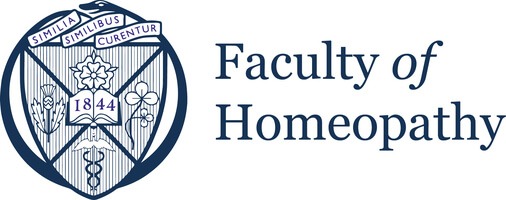The Myers cocktail, also known as the Myers' cocktail or vitamin cocktail, is an intravenous (IV) injection containing a mixture of vitamins, minerals and amino acids. It was developed in the 1970s by Dr. John Myers, a physician from Baltimore, Maryland who used it to treat a wide range of health conditions in his complementary medicine clinic.
In this comprehensive guide, we will cover everything you need to know about the Myers cocktail, including:
The Myers cocktail was created by the late Dr. John Myers in the 1970s. Dr. Myers graduated from the University of Maryland School of Medicine in 1943 and went on to open a complementary medicine clinic in Baltimore.
At his clinic, Dr. Myers used intravenous infusions of vitamins and minerals to treat a wide range of health conditions. He found that specific combinations of nutrients delivered intravenously could often produce rapid improvements in his patients' symptoms.
Over time, he developed a basic formulation that seemed to help many of his patients - this eventually became known as the “Myers cocktail.” The exact ingredients and doses were refined over the years as Dr. Myers and his colleagues gained more experience.
The Myers cocktail gained popularity as an alternative treatment and was used by a growing number of complementary and integrative medicine practitioners. It has yet to be fully accepted into mainstream medicine, but remains in use today at many alternative and anti-aging clinics across North America.
Dr. Myers never published any research or clinical data on his vitamin cocktail formulation. However, the basic ingredients and dosing protocol have been shared among alternative medicine practitioners who worked with him or were trained by his former staff.
Today, there is still some variability in the exact ingredients and doses used for the Myers cocktail, but most formulations are based on Dr. Myers’ original recipe. Ongoing research is helping to refine and optimize the ingredients to maximize clinical benefits.
The basic Myers cocktail consists of a mixture of vitamins, minerals and amino acids administered together by intravenous injection. While exact formulations can vary, these are the most common ingredients included:
The saline solution used to deliver the ingredients may also contain small amounts of other minerals like zinc or selenium. While the exact ingredients used can vary, the core components listed above appear consistently in most Myers cocktail recipes.
The Myers cocktail is thought to exert its effects through several key mechanisms:
The combination of these mechanisms is thought to account for the diverse benefits many patients report after Myers cocktail administration for various health conditions. However, more research is still needed to fully understand all the ways these ingredients combine to produce effects in the body.
The Myers cocktail has been used by alternative medicine practitioners to treat a wide array of health conditions, including:
The cocktail seems to be most effective for conditions related to inflammation, oxidative stress, muscle tightness, low energy, nutrient deficiencies, or nervous system imbalances. Patients generally report rapid improvements in symptoms after receiving the IV nutrients.
Despite being used for decades by alternative practitioners, there is still limited clinical research on the Myers cocktail. Most evidence is based on anecdotal patient reports, case studies, and small trials. However, some key studies have been published:
While promising, larger and more rigorous studies are still needed to confirm the efficacy of Myers cocktails for various conditions. Most current evidence is considered relatively weak or preliminary. Standardization of the ingredients and doses used across studies would also be beneficial.
Overall, many patients and alternative health providers report excellent real-world results using Myers cocktail formulations. But more research is required to demonstrate effectiveness conclusively for specific health problems and to clearly understand the mechanisms of action.
When properly administered by a qualified practitioner, the Myers cocktail is generally considered very safe. Serious or long-lasting side effects are rare. However, some potential temporary adverse effects can include:
Stop any infusion immediately and seek medical help if breathing problems, muscle weakness, or fainting occurs. With appropriate precautions and monitoring, the Myers cocktail is very unlikely to cause harm.
The Myers cocktail is administered intravenously, allowing the nutrients to directly enter the bloodstream. It should only be given by a doctor or qualified healthcare practitioner trained in IV therapy. Proper sterile technique is essential.
A standard dosage for most adults is:
The ingredients are dissolved together in sterile saline in a 100 mL bag and infused over 30-60 minutes. The IV line should be flushed with saline before and after. Most patients receive 1-2 IVs per week for 4-8 weeks. Maintenance IVs every 1-3 months may follow the initial treatment cycle.
Lower doses should be used in elderly or frail patients to start. Children may be given reduced amounts based on body weight. Patients are advised to drink plenty of fluids before and after to stay well hydrated and flush out toxins.
The Myers cocktail is only available at select integrative, functional, and anti-aging medicine clinics. It is not offered at most mainstream hospitals or outpatient centers. Typical costs are around $150-300 per IV infusion paid out-of-pocket since insurance does not cover it.
Some clinics offer discounted packages of 4-10 Myers cocktail IVs, reducing the per-treatment cost. Given the limited insurance coverage, the Myers cocktail remains a relatively expensive therapy that may be cost prohibitive for some patients. Talk to your provider about any discounts or payment plans they may offer.
Using an injectable vitamin service is another option that can provide mobile Myers cocktail IVs at home for similar pricing as clinic-based treatments. This improves convenience while keeping costs down. Discuss different options with your practitioner to find the most suitable services for administering and paying for Myers cocktails.
How long do the effects and benefits usually last after receiving the IV?
For many patients, a single Myers cocktail IV provides symptom relief and increased energy for 1-2 weeks. Those with chronic health problems often undergo a series of 4-12 infusions for sustained effects. Maintenance IVs every 1-3 months help some people maintain improvements long-term.
How many Myers cocktail IVs will I need?
Most practitioners recommend 4-8 IVs over the initial 1-2 month treatment period for noticeable results and to correct nutrient deficiencies. For ongoing benefits in chronic conditions, periodic maintenance IVs may be advised, with frequency tailored to the individual.
Are there any reasons I should not get the Myers cocktail?
It should be avoided in patients with kidney failure, certain genetic disorders impacting B-vitamin metabolism, or glucose-6-phosphate dehydrogenase (G6PD) deficiency. Allergy to any ingredients is also a contraindication. Otherwise it is generally safe, though correct doses must be given.
How soon after the IV can I eat or drink?
Most providers recommend waiting 30-60 minutes before consuming anything orally. This allows time for full absorption and lowers chances of nausea or vomiting. Stay well hydrated after the infusion to flush everything through.
Is there anything special I need to do before receiving a Myers cocktail?
No special preparation is needed, but make sure to disclose any health conditions, medications, or supplements you take. Eating a light meal beforehand and being well hydrated is also recommended to prevent side effects.
How should I expect to feel during and after the IV infusion?
Most people feel very relaxed, sometimes even mildly euphoric during the IV. Flushing, warmth, and changes in energy are common right after. Drink extra fluids, rest, and avoid heavy exercise for 24 hours.
Can the Myers cocktail be dangerous if given too quickly?
Yes, Myers cocktail IVs must be administered slowly and should not exceed 1 mL per minute. Rapid infusion can cause a sharp drop in blood pressure or serious side effects. IV push injections should always be avoided.
Why is an IV better for nutrients than just taking vitamin pills?
IV delivery allows much higher doses than possible orally without intestinal side effects. Nutrients enter directly into cells for superior absorption compared to supplements. Specific combinations in the Myers cocktail also have synergistic benefits.
Can I get the Myers cocktail while pregnant or breastfeeding?
Safety during pregnancy is uncertain, so most doctors advise avoiding it unless the potential benefits outweigh the risks. Individual ingredients like vitamin C may be used safely under medical guidance. Discuss options with your provider.
How should I track progress during Myers cocktail therapy?
Keep a daily symptom journal to document energy levels, pain, mood, digestions, headaches etc. Your practitioner can review this regularly to assess progress and adjust dosage if needed for maximum benefits.
The Myers cocktail continues to be used by alternative practitioners to effectively treat a diverse range of health conditions, particularly those related to inflammation, oxidative stress, infections, low energy, nutrient status, and muscle spasms. Patients often report excellent real-world results. While more research is still needed, existing studies help support its use for conditions like migraines, fibromyalgia, asthma, and MS among others.
When administered properly, side effects are generally mild and temporary. However, IV Myers cocktails may still be prohibitively expensive for some patients given the lack of insurance coverage. If you are struggling with any of the health problems potentially ameliorated by Myers IV nutrient therapy, consult a qualified practitioner to explore if it's an appropriate option for you.

Consultant in General Internal Medicine (GMC reg. number: 7541548) and Specialist in Complementary Cancer Care
MBBS, MRCIM (Spain), MSc Homeopathy, MFHom, Master practitioner in Ericksonian Hypnotherapy and Neurolinguistic Programming, MSc in Nutrition
Integrated medicine Doctor and Holistic Medicine Practitioner



